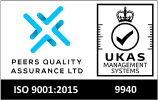In today's competitive job market, having a strong personal brand is crucial for job seekers. A personal brand can be best described as a unique combination of skills, experiences, and personality traits that make you stand out from other candidates. It is what sets you apart and makes you memorable to potential employers.
In this blog post, we will discuss the importance of a strong personal brand in your job search and provide some tips on how to build and promote it effectively.
Why is a Strong Personal Brand Important?
1 - Helps You Stand Out in a Crowded Job Market
Did you know that according to a 2019 recruitment survey, 59% of recruiters consider personal branding to be a top factor when evaluating job candidates? With so many applicants vying for the same positions, investing time and effort into crafting your personal brand can make a huge difference in standing out from the competition.
Having a strong positioning in the job market can increase your visibility and catch the attention of recruiters and hiring managers. Not only does it help differentiate you from other candidates, but it can also lead to higher job satisfaction and retention rates.
2 - Enhances Your Professional Reputation
A strong personal brand can have a significant impact on your professional reputation. It communicates your unique strengths and expertise, and can help you build credibility and authority in your field. By establishing a clear and consistent brand message, you can become known as a thought leader in your industry and gain the respect of your peers and colleagues.
When you have a well-crafted personal image, it can lead to more opportunities and career advancement. Employers are always on the lookout for candidates who have a strong professional reputation and can bring value to their organisation. By showcasing your unique qualities through your resume, cover letter, and online presence, you can demonstrate your value proposition and differentiate yourself from other candidates.
3 - Increases Your Confidence and Self-Awareness
The process of building your reputation requires you to reflect on your strengths, values, and passions. This process can lead to increased self-awareness and help you develop a stronger sense of confidence in yourself and your abilities. By taking the time to identify your unique qualities and what makes you stand out from others, you can gain a better understanding of your personal and professional goals, which can in-turn lead to more opportunities for career advancement and success.
Tips for Building and Promoting Your Personal Brand
1 - Define Your Unique Value Proposition
Developing your unique value proposition (UVP) is an essential step in building a strong personal brand. Your UVP is the unique combination of your skills, experiences, and personality traits that differentiate you from other candidates.
A survey conducted by Millennial Branding and Randstad found that 77% of recruiters believe that a candidate's unique value proposition is becoming more important than their experience. By defining your UVP and incorporating it into your CV or portfolio, you can increase your chances of standing out from other candidates and getting hired for your dream job.
A strong UVP can also help you negotiate higher salaries and advance your career. Taking the time to identify your UVP and communicate it effectively can help you build a powerful personal brand that sets you apart from the competition. Start by identifying your strengths and passions, and then brainstorm how you can use them to provide value to potential employers.
2 - Create a Personal Branding Statement
Creating a personal branding statement is an essential step in developing your personal brand. It's a brief statement that summarises your unique value proposition and communicates what sets you apart from others in your industry. Your personal branding statement should be concise, clear, and memorable.
To create an effective personal branding statement, you should start by identifying your unique strengths and experiences. Think about what sets you apart from others in your field and how you can provide value to potential employers. It's also important to remember that your personal branding statement should be adaptable to different situations.
3 - Develop Your Professional Presence
Your professional presence includes a variety of documentation - your resume, personal website, LinkedIn profile and any other online or offline materials that showcase your skills and experiences. In today's digital age, having a polished and professional LinkedIn profile is more important than ever.
Online career platform The Muse estimates that 94% of recruiters use social media to source and vet candidates. This emphasises the importance of having a strong personal brand that shines through your social media profiles – most importantly LinkedIn. By showcasing your skills, experiences, and unique value proposition on LinkedIn, you can increase your chances of catching the attention of recruiters and potential employers.
4 - Network, Network, Network
Networking is a crucial part of building and promoting your personal brand and can increase your chances of receiving referrals from your network, which are the top source of quality hires for employers. By building a strong personal brand and networking with professionals in your industry, you can increase your chances of receiving job referrals and landing your dream job.
According to a study by Jobvite, networking can also help you learn about new job opportunities and gain insights into the hiring process of potential employers. Make sure to attend industry events, join professional organisations, and connect with potential employers and mentors on LinkedIn. Building strong relationships can lead to job opportunities and referrals.
5 - Be Consistent and Authentic
As per a survey conducted by Edelman, 63% of consumers trust people more than they trust brands. This means that your personal brand should be authentic, consistent, and an accurate reflection of who you are as a professional, including your values, beliefs, and strengths. This means ensuring that your personal brand is consistent across all your professional materials and interactions with potential employers is vital to your success in job hunting.
To be consistent in your personal branding efforts, be sure to use the same tone, language, and messaging across all of your professional materials, such as your resume, cover letter, and social media profiles. This will help create a cohesive image of you as a candidate and make you more memorable to potential employers. Authenticity is also key. Be honest about your skills, experiences, and values, and avoid trying to present yourself as someone you're not. This will not only help build trust with potential employers, but it will also ensure that you are a good fit for the companies you apply to.
Conclusion
In conclusion, a strong personal brand is essential for job seekers in today's competitive job market. By defining your unique value proposition, creating a personal branding statement, developing your professional presence, networking, and being consistent and authentic, you can build and promote your personal brand effectively. Investing in your personal brand can lead to more job opportunities, higher salaries, and a stronger professional reputation.












